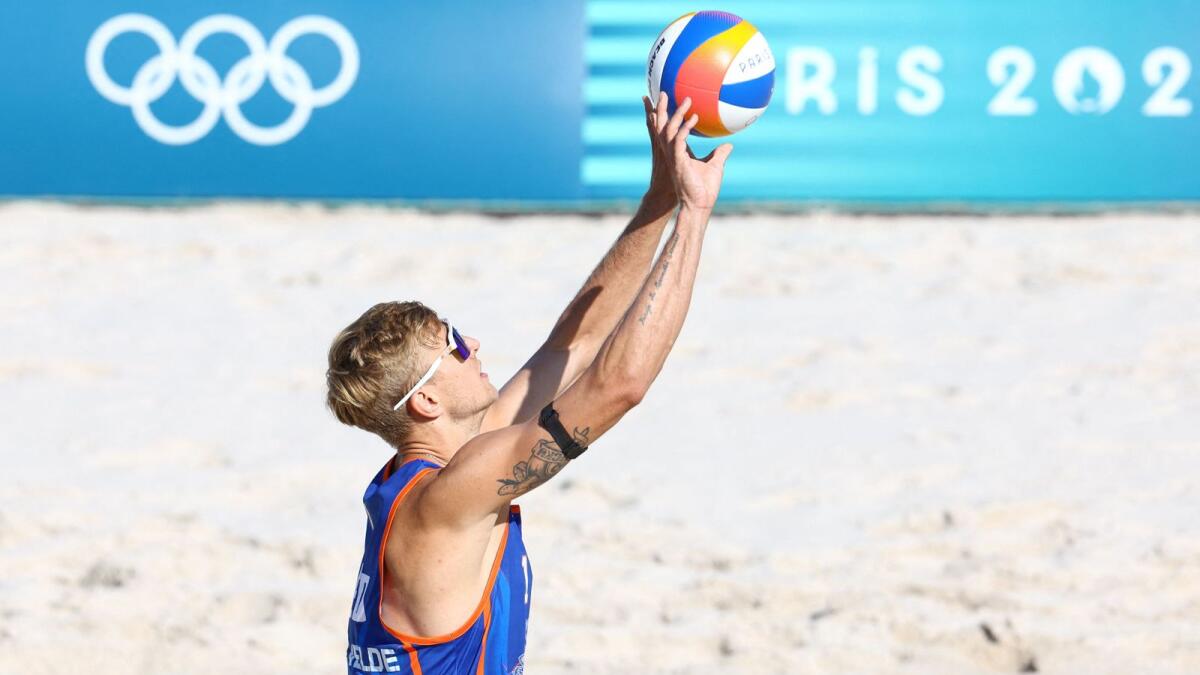Steven van de Velde, a Dutch beach volleyball player who was convicted of raping an underage girl in 2016, faced backlash from fans during a match at the Paris Olympics. Despite being met with cheers and applause when he entered the court with his teammate, Matthew Immers, van de Velde was booed by the crowd when introduced individually. The controversial selection of van de Velde for the national team has sparked outrage from women’s and sports safety groups, including the Dutch volleyball association.
The player, now 29 years old, was sentenced to four years in prison for the crime and has since been released and resumed playing volleyball in 2017. However, his participation in the Paris Olympics has raised concerns about the message it sends regarding the prioritization of medals and money over the safety of minor athletes. With restrictions in place forbidding van de Velde from staying in the athletes’ village and speaking to the media, the situation has put the sport in the spotlight and created a division among supporters and critics.
Ju’Riese Colon, CEO of the Center for SafeSport based in the US, expressed deep concern over van de Velde’s presence at the Olympics, stating that allowing someone convicted of sexually assaulting a minor to participate sends a dangerous message. The controversy surrounding his selection has led to discussions about whether individuals with criminal backgrounds should be given opportunities to represent their country on an international platform, especially in a prestigious event like the Olympics.
Sara Alaoui, founder of The Safe Space Club in the Netherlands, criticized the Dutch volleyball association for supporting van de Velde and downplaying his past transgressions. The decision to include him in the national team has ignited debates about the concept of second chances, forgiveness, and the responsibility of sports organizations to prioritize the well-being and safety of athletes, particularly minors. The match between van de Velde and Immers against the Italian pair in the initial group stages highlighted the mixed reactions to his participation in the Olympics.
Despite facing criticisms and protests from various groups, Steven van de Velde’s presence at the Paris Olympics as a convicted rapist has shed light on the complexities of sports ethics, rehabilitation, and societal attitudes towards individuals with criminal pasts. The Dutch volleyball player’s controversial selection for the national team has raised questions about accountability, redemption, and the boundaries of forgiveness in the context of competitive sports. As the tournament progresses, van de Velde’s participation will continue to generate discussions on the intersection of personal history, athletic achievement, and moral responsibility at the highest level of international athletics.










